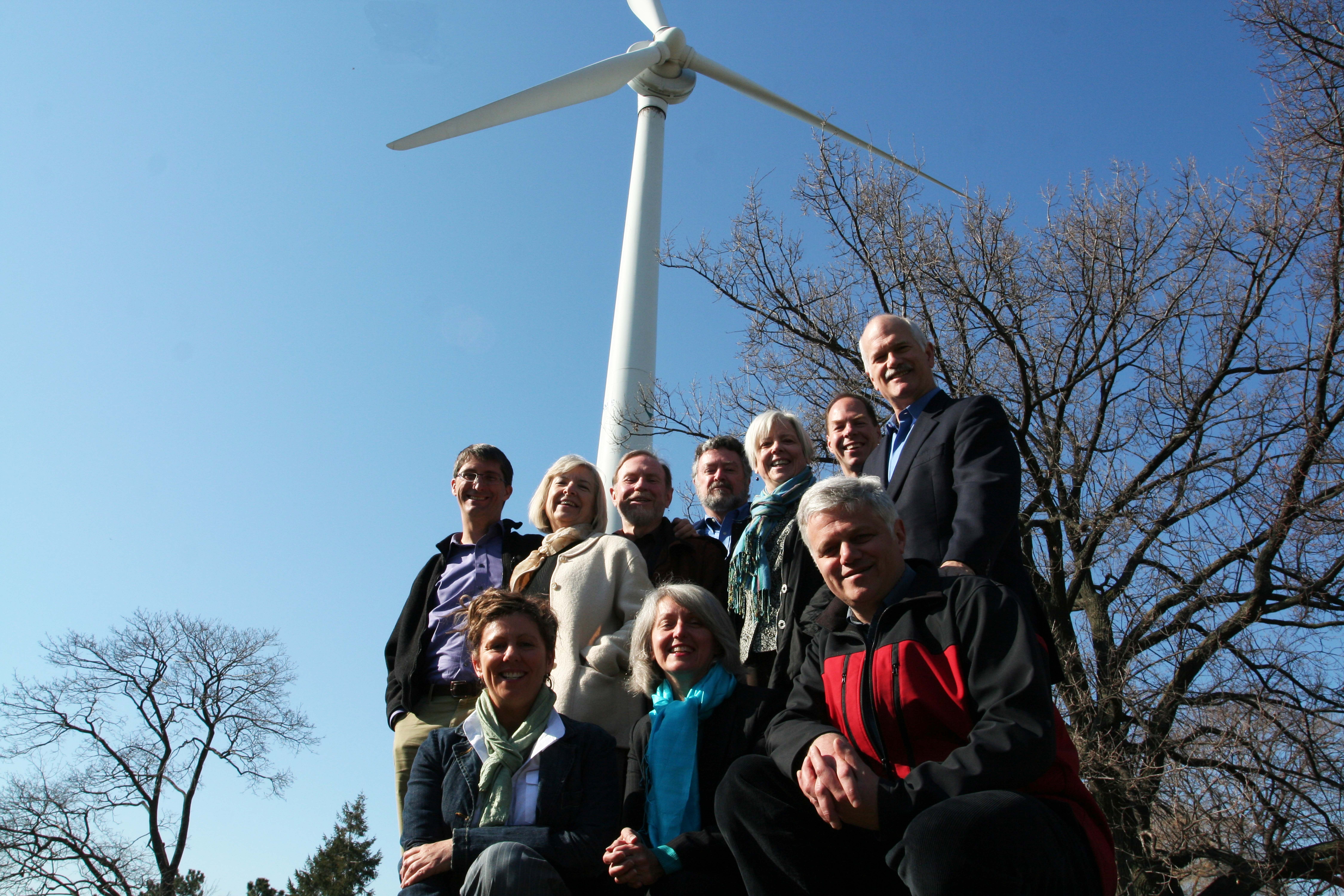
CWCF Associate Member TREC Renewable Energy Co-operative was founded in 1998 by a group of Torontonians interested in addressing their carbon footprint collectively. They drew particular inspiration from Germany, where the renewable energy co-operative model had achieved great success.
“They could see they could make small steps in their own life,” says TREC’s Co-Executive Director, Mary Warner. “But they wanted to make a bigger impact by doing something together.”
The founders began their journey with the launch of North America’s first urban wind turbine in Toronto, erected in 2002. They went on to advocate for Ontario’s Green Energy Act, and also supported the creation of SolarShare Co-operative, which now has over 50 solar projects across the province. The founders’ decision to establish themselves as a co-operative, Warner notes, was a key part of their philosophy.
“It was really important to the founders to do something collectively, and they liked the co-op model because it allowed for collective participation in a solution,” she says. “So when you’re talking about climate change, the impact of one person can be multiplied if you do it as a collective. The co-op model fit in really well with their principles of collective action and doing something good for the community, and allowing for that participation, beyond just a single individual.”
Warner joined TREC in 2009 as the office manager. She’s stayed with the Co-op since then because she’s appreciated the opportunity to see renewable energy take off.
“A lot of people talk about big ideas but the implementation and seeing it become a success on its own has been really exciting to watch,” she says.
Warner acknowledges the emergence of renewable energy as a viable alternative has also presented challenges for TREC, with projects such as supporting other non-profits and co-operatives to consider community bonds as a financing tool through Tapestry Community Capital breaking new ground in ways that aren’t always readily understood.
“When you’re trying to do something new it’s always hard,” she says. “We’re not working in an industry that already exists. We’re trying to get renewable energy co-ops incubated and started. We’re trying to build the market for renewable energy co-ops in Ontario, and with Tapestry we’re trying to support organizations across Canada to raise money through the mechanism of community bonds, but community bonds aren’t well known, either by organizations who could raise them or by individuals who could invest in them. And so it feels like the challenge is we feel we can do a lot of good in the world, but getting that message out, sharing that story, pushing the boundaries is a challenging place to be sometimes.”
That said, Warner is quick to encourage others who may be interested in renewable energy co-ops to seize the opportunity.
“Collective action can make a difference and co-ops are such a great vehicle for collective action that even if it doesn’t feel like it’s the easy path, you can have a lot more impact if you do it together. That would be my advice: even if it’s not easy, it’s possible!”